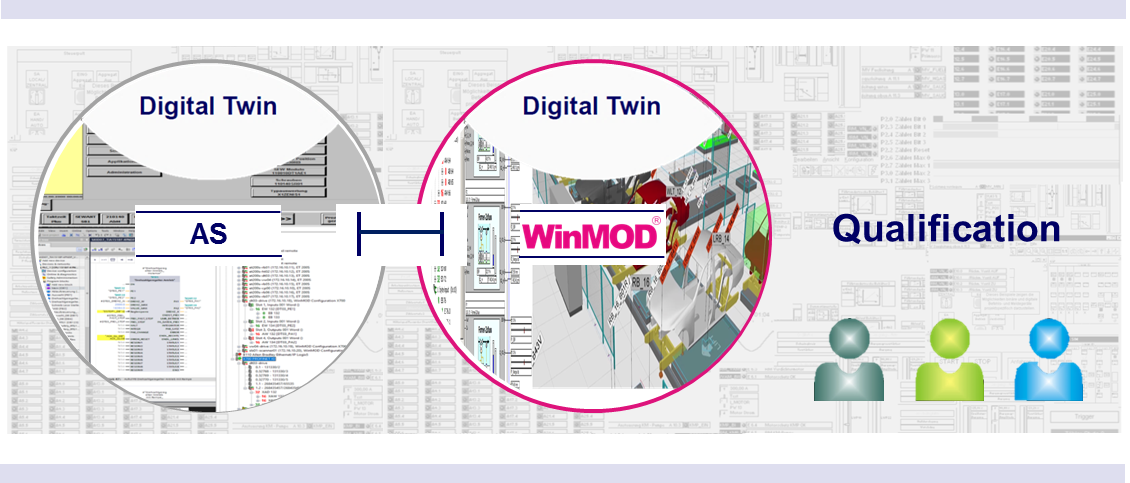
Qualification
Industry 4.0 requires continuous digital education and training. The knowledge and skills of the employees are in the foreground for use in automation. Existing know-how must be secured and new content must be taught.
The concept of Virtual Commissioning creates the prerequisites for this approach. The educational workplace is digitalized. It combines real or virtual control with virtual devices, machines or entire systems. The results of the Virtual Commissioning will continue to be used for the qualification of operators.
The Digital Twin communicates the perception and function of real technology and technologies.
Main Advantages:
- resource-saving as real technology is only used concurrently
- availability at freely selectable locations
- active and individual use
- mediation of content for which no real components are available
Realization with WinMOD:
- the use of WinMOD Systems has been state of the art for many technologies and automation systems for more than 20 years
- the scalability of the WinMOD System Platform leads to tailor-made systems for digital education and training
- the virtualization of devices, machines and plants is well advanced
Achievable Results:
- the results can be adapted as a digital twin for use in education and training
- for the communication of basic knowledge, the cooperation of educational institutions on a jointly defined system platform is efficient and makes resources usable
